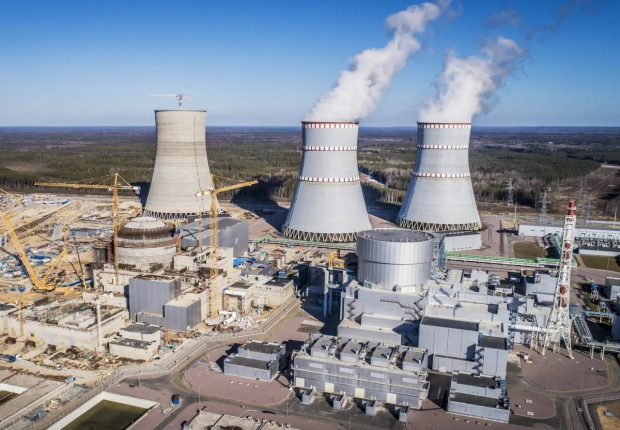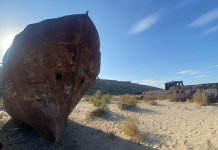By Greg Brummel
Western countries are gradually tightening sanctions-ring around the Russian corporation Rosatom. Recent developments in US are also worth deep thoughts. If initially it was only about subsidiaries, now the US Congress, as part of the complete rejection of energy imports from the Russian Federation, also intends to ban the import of uranium. At the same time, the question arises – how will these measures affect Rosatom’s partners, including Central Asian countries? Is there a need to review about doing business with Russia or refuse concluding new contracts with the Russians as yet? How can affect Russian partners in trade such an embargo?
I DON’T NEED SOMEONE ELSE’S!
Risks are soaring. With the outbreak of hostilities in Ukraine, the American side imposed a complete ban on the import of energy resources from Russia: oil, petroleum products, coal, etc., adding a price ceiling on offshore oil exports. But uranium was not included in the (forbidden) list.
In order to have a more effective impact on the Russian Federation, US congressmen intend to impose an embargo on the Russian company Rosatom.
“The war in Ukraine has clearly shown that we cannot depend on the whims of Russia in matters of fuel supplies”: said the chairman of the Committee of the House of Representatives of the US Congress, Jeff Duncan.
According to the draft embargo, the US nuclear industry is able to abandon Russian uranium. In this regard, the first step can be a ban on all energy sources of Russian origin, including uranium.
In order to implement it, the sanctions package is being developed against Rosatom. Washington intends to activate the “Nuclear Fuel Safety Program”, under which substantial allocations of $ 3.5 billion will be allocated to increase production, conversion, enrichment, and reconversion of uranium in the United States, the construction of new HALEU-type reactors, as well as deepening cooperation in this area—a sphere with allies.
If Russian fall under the sanctions being developed by Washington, it will be threatening for such countries cooperating with Rosatom either the curtailment of peaceful atomic projects, or a serious deterioration in economic partnership with the United States– not profitable for every state.
ENERGY SECURITY LEASH
The problems that will arise with the sanction of the “anti-uranium” sanctions package can be perfectly understood with regard to Uzbekistan. The Republic is conscientiously among the top ten States with increased and relatively easily accessible uranium reserves. Not so long ago, Uzbekistan embarked on the modernization of its energy system.
Initially, it was assumed that the French would become the modernizers. Thus, the French company “Orano Mining”, together with Uzbek representatives, created the enterprise “Nurlikum Mining”. However, the French company could not compete with Rosatom in the construction of a nuclear power plant. How fair that competition was, is a big question. But the leadership of Uzbekistan preferred the Russians. Either because of the favorable conditions, or, more likely, Russia managed to reach an agreement with the local elites in time. The conditions promised by the Russian Federation looked fabulous – under the terms of the agreement reached, Uzbekistan received two VVER-1200 units with a capacity of 1.2 GW each. The site for the NPP was allocated on the shore of Lake Tuskan in the Jizzakh region.
In this place, situation for Uzbekistan might have been apparently enviable… but with a real look at things, it somehow turned out badly. If we take away the optimistic euphoria, economically Uzbekistan voluntarily drove itself into a contractual long-term bondage, for the next ten years with Russia. How dependence on a business partner turns out in a market economy is shadowy. And everyone understands how an economic lever of pressure easily turns into a political one.
According to the Columbia University Global Energy Policy Research Center, an important signal was the information about the firm position of the G7 countries to reduce dependence on Russian energy carriers and replace them with other reliable suppliers. Given these circumstances, Uzbekistan should seriously think about whether it is worth implementing a project to build its own nuclear power plant together with the Russian?
At the same time, the fact that due to the previously imposed sanctions, Moscow is very limited (in some places there is a complete absence) of the necessary electrical equipment for the construction of nuclear power plants, the producers of which are Western countries, is hidden or silent obstacle.
Another big fly in the ointment can be the unresolved issues of reprocessing fuel waste for the extraction of plutonium and uranium. The project proposed by Rosatom during the operation of a nuclear power plant for pumping liquid radioactive waste underground poses a threat to the environment for several hundred years, thereby becoming a problem of present and future generations, which requires enormous financial resources to solve.
WHAT WE HAVE, WE DON’T KEEP!
Under the bravura marches about the coming energy abundance, Uzbekistan has practically nullified a number of other environment friendly-energy projects. In particular, we are talking about wind and solar generators, so-called renewable energy sources (RES). They were promptly and somehow very timely, as if by order, declared unpromising sources of non-permanent generation, dependent on climatic features, which, in fact, became the verdict of the project.
Initially, Uzbek scientists and experts saw the future in renewable energy, and then for some reason they rapidly stopped. Eco-friendly technologies were suddenly considered too expensive, unpredictable, requiring huge energy storage, and inconvenient for industrial purposes. “”Green” energy has stopped bringing “green”,” as critically noted in Uzbek social networks.
No, no one, of course, hints at the pro-Russian lobby, but in this situation, if it did not exist, it would have to be invented. Like in a detective story, where the main question is “Who benefits?”
The first Uzbek solar power plant, which was planned to be built in the Samarkand region, died safely in the country. The station was planned to be put into operation by 2018, but the matter has not moved forward. Everything broke down exactly on the eve of the first “atomic” negotiations with Moscow.
The Ministry of Foreign Economic Relations, Investments and Trade of Uzbekistan has not registered the contract, citing it– identified unprofitability. Moreover, the Chinese supplier could not use domestic Uzbek services and materials for the construction of the station. With suspicious promptness, the project was left over as unworkable. And the prospects for renewable energy, in general, unfortunately, too.
THE CINDERELLA TRAP
The NPP construction project are being seen as unpredictable and unreadable environmental risks associated with threats to the bio-diversity of Lake Tuzkan and the Aidar-Arnasai system of lakes that require constant recharge by dumping a huge volume of scarce fresh water from the Shardara reservoir.
It should be noted that the Aidar-Arnasai system is included in the list of Ramsar lands – wetlands of international ecological importance. Moreover, the high seismic activity of the Jizzakh region and the entire territory of Uzbekistan as a whole increases radiation risks that can put the project in jeopardy and lead to unforeseen consequences. In 1975, an earthquake of 5 points occurred in Jizzakh. In August 2016, another earthquake of 4.2 magnitude occurred there. In April 2018, the strength of the tremors reached three points.
In the event of any potential accident or radiation release, not only large densely populated agglomerations of the country will be endangered, but also the capital of Uzbekistan itself, Tashkent, fall into the lesion.
In this situation, another aspect arises – is Uzbekistan ready to expose both its territory and the adjacent regions of the neighboring state to environmental risk for the sake of these energy prospects?
Approximately the same choice of economic plans, smoothly turning into geopolitical ones, is now facing the rest of the Central Asian countries, which are also offered convenient and trouble-free stations of the peaceful atom.
Very similar to free cheese it can prove to be a trap. There is no need to explain to anyone where or when it happens.






